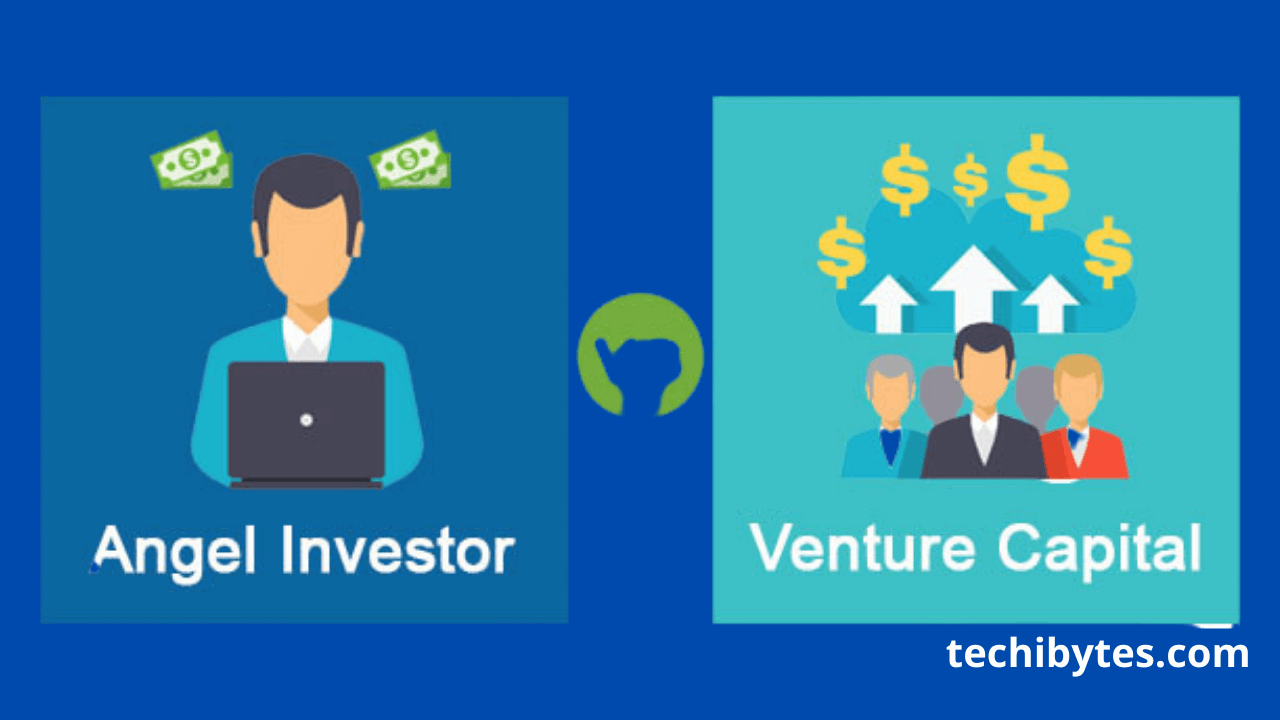If you’re launching a business and seeking investment funding, it’s critical to understand how numerous facets of the venture finance ecosystem operate. This involves the distinction between Venture Capitalist vs Angel Investors, as well as which one of the two is more applicable to your present stage of business. The financing part of a business is hard, but the more you learn, the more prepared you will be to pitch financiers and, hopefully, acquire funding.
We’ll discuss the concepts of venture capital vs angel investors, their respective advantages and disadvantages, and how you might pitch to either. By the end, you should understand not only how these two types of investors operate, but also how you can prioritize your goals based on which sort of investor you choose to deal with.
WHAT IS A VENTURE CAPITALIST?
A venture capitalist is an organization that has collected resources into a “fund” to invest in high-growth firms. This fund can be invested in a certain sector, geographical area, or stage of business expansion. Similar to angel investors, venture capitalists acquire an ownership stake in a business in exchange for funds flowing into it.
Google Inc., Khosla Ventures, Greycroft, Tiger Global Management, GGV Capital, Andreessen Horowitz, and General Catalyst are all examples of venture capitalists.
Pros
• Significant check amounts in the millions
• Capability to become a member of a network of organizations in which they have invested
• Future opportunities for additional, larger contributions if your business expands and continues to raise funds.
Cons
• Pitch method that is more involved
• Selections may take longer to make, as venture capitalists are typically affiliated with a larger VC firm.
• Lengthy, rigorous due diligence process that may stall the investing procedure
• May seek higher equity stakes to reduce risk and legitimize their investments.
WHAT/WHO IS AN ANGEL INVESTOR?
Generally, an angel investor is a wealthy individual who commits their own money in the initial stages of a firm in exchange for ownership (or “equity”) in the venture. Investors are required to be “accredited” and have a minimum investment of millions of dollars. These angel investors typically maintain a low image and operate through tight networks. They frequently invest independently or in “syndicates”––often with other high-net-worth persons they know or trust.
Angel Investors are high-net-worth people (such as Marc Andreessen, Roger Ehrenberg, and Keith Rabois), foundations, research institutions, nonprofit organizations, and corporations that act as contributors.
Pros
• Process of pitching simplified
• Investments are made based on faith and integrity, which benefits beginning firms.
• Reduced vigilance
• Possibility of developing a personal connection with your investor
• Funding may be more swift.
• Possibility of Reinvestment at a later date.
• Avoiding the red tape that comes along with a larger fund may be an option.
Cons
• Capital requirements are lower (typically between $25,000 and $100,000, though occasionally more).
• Frequently need to relinquish a board member to compensate for large investments
• Additional relationship-building is required.
VENTURE CAPITALIST VS ANGEL INVESTORS: SIMILARITIES AND DIFFERENCES
SIMILARITIES
Venture capitalists and angel investors share some characteristics as two of the most prevalent alternative investment sources. Among them are the following:
1. Both investors put their money into companies they believe have a good chance of succeeding. At the end of the day, they both want to earn a 20% to 30% yearly rate of return on investment, with varying degrees of risk based on the stage of the company’s performance.
2. Investors want to invest in businesses with which they have little knowledge to boost their chances of selecting high-quality companies. It makes sense: you perform better when you understand what you’re doing.
3. Both angel investors and venture capitalists swap funds for stock stakes in the businesses in which they invest.
DIFFERENCES
Both venture capitalist and angel investors firms focus on innovative start-up businesses, with a preference for those in the technology and scientific sectors. Having said that, there are several critical distinctions between them.
1. An angel investor works independently, whereas a venture capitalist is affiliated with a business.
Angel investors, a term that is occasionally used interchangeably with business angels, are persons who invest their money in a startup. Angel investors are wealthy, frequently prominent individuals who invest in high-potential businesses in exchange for an ownership stake. Considering that they are investing their own money and that there is always some danger, it is exceedingly unlikely that an angel investor will back an entrepreneur who refuses to part with a chunk of their business
Venture capital firms are made up of a group of professional investors. Individuals, organizations, retirement funds, and charities will provide financing. Limited partners refer to all of these investors as a group. On the other side, general partners are individuals who work directly with owners or entrepreneurs; they are accountable for overseeing the fund and ensuring the business continues to grow healthily.
2. They invest in a variety of different quantities.
If you’re considering contacting a venture capitalist or an angel investor, you’ll need to have an accurate estimate of the financial support they can supply. Angel investors often invest between $25,000 and $100,000 of their own money, however, they may invest more or less at times. When angels gather in a group, they may collectively earn more than $750,000.
Though angel financing is frequently a rapid answer, you should keep in mind that due to their relatively restricted financial capacity, angel investors cannot always finance a business’s whole capital requirements. On the other hand, venture capitalists fund an average of $7 million in a business.
3. Their roles and incentives are distinct.
Angel investors are mostly interested in providing financial assistance. Though they may offer advice or introduce you to relevant people if you want it, they are not obligated to do so. Their engagement is determined by the company’s desires and the angel’s personal preferences.
A venture capitalist seeks a solid product or service with a significant competitive edge, a skilled management team, and a large potential consumer. Once venture capitalists are persuaded and have invested, it is their responsibility to assist in the development of successful businesses, which is where they truly bring value.
A venture investor can assist with creating a company’s strategic emphasis and hiring senior executives, among other things. They will provide guidance and serve as a sounding board for CEOs. All of this is done to assist a business in increasing its revenue and success.
4. Angel investors invest exclusively in early-stage businesses.
Angel investors focus only on early-stage enterprises, providing capital for late-stage technological development and market launch. The capital provided by an angel investor can make all the difference in terms of getting a business off the ground.
Venture capitalists invest in both early-stage and mature businesses, dependent on the venture capital agency’s emphasis. A venture capitalist will invest in a startup that demonstrates compelling prospects and significant future growth.
A venture investor will also be willing to invest in a business with a demonstrated track record of success. After that, the venture capitalist provides cash to enable rapid expansion and growth.
5. They differ in their approach to due diligence.
Vetting has been a source of contention for angel investors for years. Certain angels exercise almost no proper checks – and they are not legally required to, given that the money is entirely theirs. However, it has been demonstrated that when angel investors devote at least 20 hours to due diligence, they increase their chances of seeing a good return by fivefold.
Venture capitalists should conduct further due diligence, as they have a legal obligation to their limited partners. Venture capitalists can spend upwards of $50,000 exploring investment opportunities.
CRITERIA TO CONSIDER WHEN SELECTING A FUNDING SOURCE
There are various criteria to consider when deciding which investors to approach for investment in your business. These criteria will assist you in determining whether venture capitalists or angel investors are the best fit for you.
Traction
Increasingly, venture capitalists will support firms only if they have revenue or, at the very least, beta clients or a prototype constructed. If you have not yet accomplished any of these stages, angel investors may be a better fit.
Requirements for Funding
Another critical factor is the amount of money that must be raised. If you require less than $1 million in the capital, you should normally seek angel investors. The majority of venture capital firms do not make investments of less than $1 million or $2 million.
Sector
The majority of venture capitalists specialize on fairly narrow domains. For example, some venture capital firms specialize entirely in the healthcare area, while others invest exclusively in software. Almost all focus on the technology sector, as these enterprises have the best possibility of rapidly increasing and achieving a significant exit (sale of company or IPO).
In comparison, the majority of retail and service businesses grow more slowly, and while they may present excellent investment possibilities, they are better suited to angel investors.
Geography
The majority of venture capitalists invest only (or strongly like to invest exclusively) within a specific geographic region.
The majority of venture capital companies invest around 150 miles of their headquarters. Angel investments are made around 50 miles of the persons’ homes and enterprises in 70% of cases. Therefore, if you are positioned far from venture capital firms, angel investors are likely a better option.
HOW TO MAKE AN INVESTMENT PITCH TO AN ANGEL INVESTOR
An angel investor may be more intrigued by the concepts or team behind your firm than in its imminent profit potential.
Sell an angel investor on why your team is a good bet, but also include essential business metrics such as sales volume, product or service offers, rivals, and their shortcomings, and, if appropriate, current sales.
HOW TO MAKE A BUSINESS PITCH TO A VENTURE CAPITALIST
While pitching a venture capitalist, describe the answer your company delivers to an everyday consumer problem and the number of clients that require that solution. For your presentation, develop a business plan and a proposal slide.
You’ll provide a four-year forecast of your company’s revenue and expenditure at your pitch meeting. Your objective is to demonstrate to the venture capitalist that the lengthy return on investment more than compensates for the relatively brief risk.
FAQ
1. Are angel investors compensated with equity?
Typically, an angel investor contributes funds in exchange for equity (company stock) or convertible debt, which would be a debt that can be turned to equity at a future date.
2. Is it possible for an angel investor to steal my idea?
They are unlikely to copy your ideas and rebrand themselves as your primary competitor. Startup and early phase investors exist to finance large businesses like yours, not to run them.
3. Do VC firms plagiarize ideas?
The majority of venture capitalists are honorable and do not engage in “business plan theft.” However, because venture capitalists assess numerous comparable business plans and ideas and frequently fund only one, it may look as though the investor is copying your idea when, in fact, they are not.
4. Are investors compensated monthly?
Investors might avoid monthly income funds and instead invest in funds that give a regular dividend. Additionally, investors can direct dividends to a separate bank account, which subsequently transfers regular monthly income to a current account.
5. Are investors compensated indefinitely?
Yes, depending on the investment period and percentage held, but only if they decide to sell their stake in the company to you, for example. Then you own their stake and are no longer required to give them a percentage of the profits.
CONCLUSION
Whichever technique you take first, ensure that you have an extremely compelling, clear, and simple-to-understand pitch—along with a comprehensive business plan. Even if you believe your firm has the potential to be the next great thing, the entire venture capital and investment procedure is focused on convincing someone else to believe the same way. Effectively communicate, expect questions (or attempt to answer them in advance), and have a firm grasp of your market, potential, and objectives.
If angel investors or venture capitalists are not a good fit for your firm, you may need to consider more typical business lending options, such as SBA loans, personal loans, capital funding, and even corporate credit cards.
REFERENCES
https://www.fundera.com/blog/angel-investor-vs-venture-capitalist
https://www.business.com/articles/angel-investors-vs-venture-capitalists/
https://republic.co/blog/founder-resources/angel-investors-vs-venture-capitalists
https://www.businessplantemplate.com/venture-capital-vs-angel-investors/










